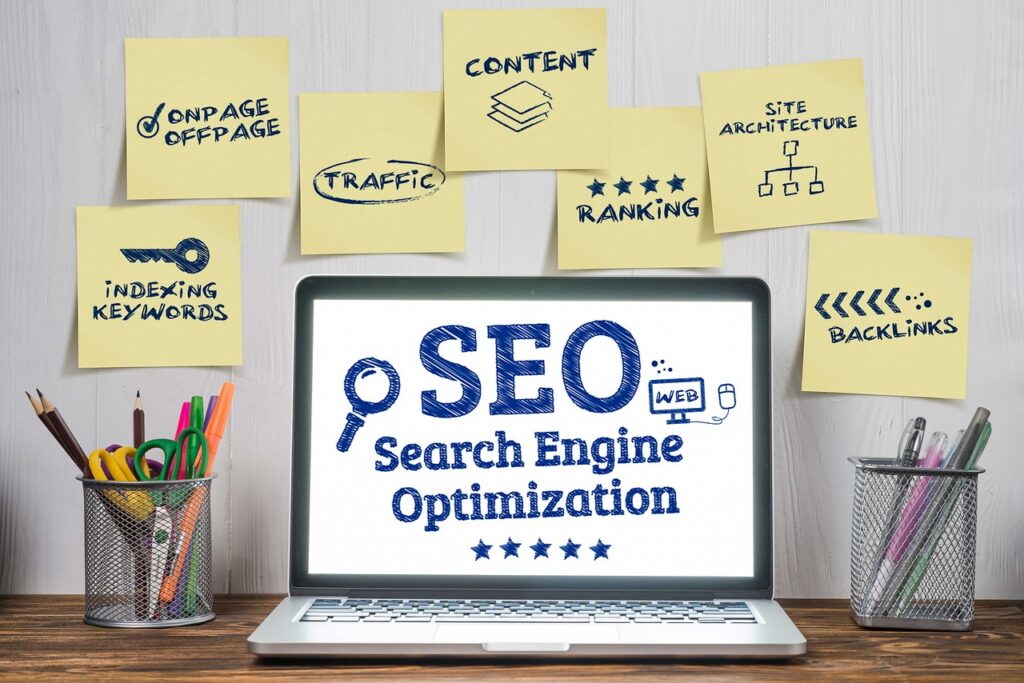In this article, you will discover the fascinating world of search engine ranking and how it affects websites. Have you ever wondered why some websites appear at the top of search results while others are buried several pages deep? Well, let’s uncover the secrets behind this digital hierarchy and explore the factors that determine how search engines rank websites. Buckle up, because the journey into the realm of SERPs (Search Engine Result Pages) is about to begin!
How to Make Money with YouTube
Create an empire of automated video websites for multiple streams of income
How Do Search Engines Rank Websites?
The Importance of Search Engine Rankings
Have you ever wondered how search engines decide which websites to show on the first page of search results? The answer lies in the complex algorithms that these search engines use to rank websites. Search engine rankings are incredibly important because they determine the visibility and traffic your website receives. The higher your website ranks, the more likely it is to be seen by users and attract organic traffic. Therefore, understanding how search engines rank websites can help you optimize your own site and improve its visibility in search results.
Crawling and Indexing
To effectively rank websites, search engines need to understand what pages exist and what they are about. This is where the process of crawling and indexing comes in. Search engine bots, also known as spiders or crawlers, visit websites and follow links to discover and analyze new pages. They collect information about these pages and add them to the search engine’s index. The index is essentially a giant database that contains information about all the web pages the search engine has discovered and deemed worthy of being included in search results. So, the first step to getting your website ranked is to ensure that search engine bots can successfully crawl and index your web pages.

On-Page Optimization
Once search engine bots have crawled and indexed your website, it’s time to optimize your on-page elements. On-page optimization refers to making the necessary changes on your website to improve its visibility in search results. One important aspect of on-page optimization is the use of relevant keywords.
Keywords
Keywords are the words or phrases that users type into search engines when looking for information. By incorporating relevant keywords into your website’s content, meta tags, and headings, you can signal to search engines the topic of your web pages. However, it’s important to use keywords naturally and avoid keyword stuffing, as search engines have become increasingly sophisticated in detecting attempts to manipulate rankings. Remember, the goal should always be to provide valuable and relevant content to your users.

Relevance and Quality of Content
While keywords are important, search engines also prioritize the relevance and quality of your content. Search engine algorithms are designed to analyze the content on your website and determine if it matches what users are searching for. Therefore, it’s crucial to create high-quality, informative, and engaging content that meets the needs of your target audience. When your content is relevant and valuable, search engines are more likely to rank your website higher in search results.
Backlinks
Backlinks, also known as inbound links, are links from other websites that lead back to your site. Search engines view backlinks as votes of confidence in your website’s authority and relevance. When reputable and authoritative websites link to your content, it signals to search engines that your website can be trusted and provides valuable information. The quantity and quality of backlinks play a significant role in search engine rankings. However, it’s important to note that quality always trumps quantity when it comes to backlinks. One high-quality backlink from an authoritative website can have a more positive impact than multiple low-quality backlinks.

Social Signals
In recent years, social media has become an increasingly important factor in search engine rankings. Search engines consider social signals, such as likes, shares, and comments, as indicators of a website’s popularity and relevance. When your content is widely shared on social media platforms, it increases the chances of it being seen and linked to by other websites. This, in turn, can positively impact your search engine rankings. Therefore, it’s essential to develop a strong social media presence and create shareable content to improve your website’s visibility in search results.
User Experience
Search engines want to provide their users with the best possible experience. As a result, they take into account various aspects of user experience when ranking websites. Factors such as page loading speed, mobile friendliness, ease of navigation, and overall user engagement all contribute to the overall user experience. For instance, if your website takes too long to load or is not mobile-friendly, it can negatively impact your search engine rankings. Therefore, it’s important to optimize your website for a seamless and user-friendly experience across all devices.

Mobile Friendliness
With the increasing use of smartphones and tablets, search engines have begun prioritizing mobile-friendly websites in their rankings. A mobile-friendly website is one that is designed to be easily navigable and readable on smaller screens. In addition to better search engine rankings, having a mobile-friendly website also improves user experience, as more and more users access the internet through their mobile devices. So, if your website is not mobile-friendly, you may be missing out on valuable traffic and potential customers.
Website Loading Speed
In today’s fast-paced world, users have little patience for slow-loading websites. This is why search engines take website loading speed into consideration when ranking websites. A slow-loading website can significantly impact user experience and increase bounce rates. To improve your website’s loading speed, consider optimizing images, minimizing the use of plugins, and utilizing caching techniques. By ensuring that your website loads quickly, you can provide a better user experience and increase your chances of ranking higher in search results.
In conclusion, understanding how search engines rank websites is crucial for improving your website’s visibility and attracting organic traffic. Factors such as crawling and indexing, on-page optimization, keywords, relevance and quality of content, backlinks, social signals, user experience, mobile friendliness, and website loading speed all play a role in determining how search engines rank websites. By optimizing these aspects of your website, you can improve your chances of ranking higher and reaching your target audience. So, start implementing these strategies, and watch your website climb the search engine rankings!






